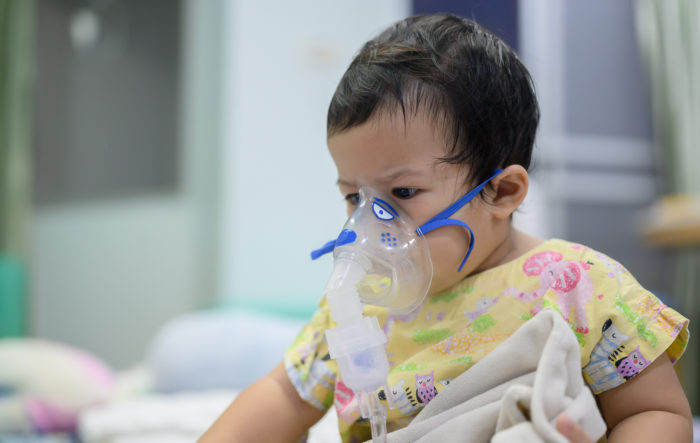By Gloria Wai Chung Li, MD
In June of this year, at age two, my daughter, Aria, was sent home from daycare with a high fever. Her pediatrician was concerned and prescribed an antibiotic for a bacterial pneumonia. A COVID-19 swab was obtained – negative. Yet after a few days, she still wasn’t getting better. In fact, she was getting worse.

Her breathing was getting more labored with audible wheezing. She became exhausted as every ounce of energy was used to maintain her breath. My husband commented that Aria was acting like her older brother did when he had respiratory syncytial virus, commonly known as RSV, at 10 months old.
I brought her back to her pediatrician, then urgently to the hospital. In the emergency room, she was immediately put on oxygen and was swabbed for COVID-19 and RSV. Her COVID-19 test was negative. Her RSV test; however, was positive.
By the time it came back, she was already in intensive care. We had been here before. In fact, Aria was born prematurely at 24 weeks and spent her first 5 months in the NICU, so we knew the chaos of alarms and flashing monitors.
The hardest part was seeing her struggle, but she was older this time, more aware that she was ill, more aware of her surroundings, and more easily scared. Watching your child struggle to fight a viral infection that no one – including myself – initially suspected was defeating as a parent.
Her doctors explained RSV in the summer is unusual. They hardly look for it during warmer months. This past winter was particularly unusual as RSV cases were at an all-time low. This is a result of the precautions taken for COVID-19.
I’m thankful Aria got better with high flow oxygen and that she turned around before needing ventilator support.
But for countless other children out there like her, I’d like to see RSV testing become more immediate. We could have avoided a lot of pain and frustration had she been tested for RSV the first time she was presented with a high fever.
I’d also like to see more children have the chance to ward off RSV before it starts. RSV is dangerous but treatable, even preventable, through a medication known as palivizumab. Aria was too old to qualify for it the year she landed in the hospital, but it’s easy to see how she may have benefitted. Other kids like Aria deserve more protection, too.
So, as RSV seasons sets in, parents and health care providers should be vigilant about testing for RSV. It’s a simple swab that could save your child and family from unnecessary suffering.

Gloria Wai Chung Li, MD, is a practicing adult pulmonologist in Texas and is a member of the National Coalition for Infant Health.

